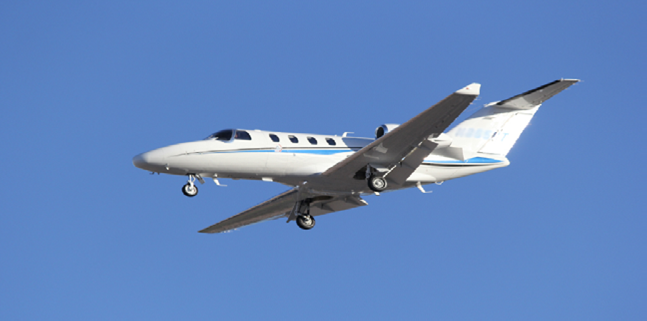2020 Biz Jet Industry? Not Another ‘Cookie-Cutter 2019,’ Analyst Says

The business aviation industry in 2020 will look much different than it did in 2019, according to Brian Foley with Brian Foley Associates.
In 2020, the green movement will cause companies to rebrand themselves as environmentally responsible, emerging markets will become more meaningful buyers of business jets, while worldwide sales of about 700 business jets a year “will test the resolve of some plane manufacturers,” Foley predicts.
An increase in Flygskam, the Swedish term for flight shaming, means private flyers will seek ways to evade judgment and “public humiliation.” The term was developed by environmentalists to create the perception that one should be ashamed for flying and leaving a footprint. To that end, flyers will voluntarily pay into third-party carbon offset programs or abandon aircraft ownership by using charter, fractional or other services that better protect their identities, Foley said.
“The latter is not at all helpful to new business jet sales, which have been stubbornly anemic for the past decade,” he said. “The only way out of this quagmire would be through the gradual introduction of hybrid-electric propulsion systems which eventually lead to all-electric engines. While the former could take 10 years and the latter 20 to come to limited fruition, it would eventually squelch the criticism even if smoke-belching, coal-fired electric plants are being used to charge the batteries.”
Second, Foley advises to follow the money in 2020.
In 2019, the U.S. stock market rose 19%, he noted. With a repeat unlikely in 2020, investors will turn to overseas financial markets for better returns.
“This will have the effect of stimulating non-North American and emerging markets, which have been on hiatus for much of the decade,” Foley said.
In 2010, 35% of worldwide deliveries were to emerging markets. In 2018, the figure dropped in half because of a variety of geopolitical and economic reasons. Foley now predicts an upturn in sales from emerging markets.
“An inflow of investment due to attractive stock valuations coupled with an improved outlook for global growth and the probability of a successful Brexit will create a decent uptick in offshore business jet sales,” Foley said. “This comes at a good time as the economic cycle of largest purveyor of jets, the U.S., matures and buyers remain skittish.”
At the same time, however, the charter industry continues to be an oversupplied market. Earlier predictions that young people want to fly but not own private aircraft have not shown up in flight statistics.
“The unpopular and contrarian truth is that the new aircraft sales lull cannot be attributed to the instant gratification crowd, nor are they swarming to any non-ownership means of private air travel,” Foley said.
A strong economy is no longer a predictor of increased business jet sales, he said.
Although the stock market has been breaking records, sales have been flat. Much of the stock market run-up can be attributed to an artificial government interest rate stimulus rather than fundamentals, Foley said. Instead of buying jets, companies have been using profits to buy back company stock.
“It could even be argued that sales have remained stable and not fallen any further only because of a good economy,” Foley said. “This kind of reasoning would then portend a decrease in sales should economic growth falter in any way.”
In the meantime, seven manufacturers build 41 models of new business jets and vie for worldwide sales of about 700 per year, Foley noted.
“There are too many business jet models chasing too few buyers and something will likely give,” he said.
In response to tepid demand, Textron Aviation and Gulfstream announced layoffs in 2019.
“With such a relatively small market and workforce cutbacks, it wouldn’t be surprising for (at) least one of the participants to call it quits,” Foley said. “The last culling of the herd hasn’t occurred since Hawker Beechcraft went bankrupt a few years ago.”
All in all, “2020 will not be just another cookie-cutter 2019,” he said.





